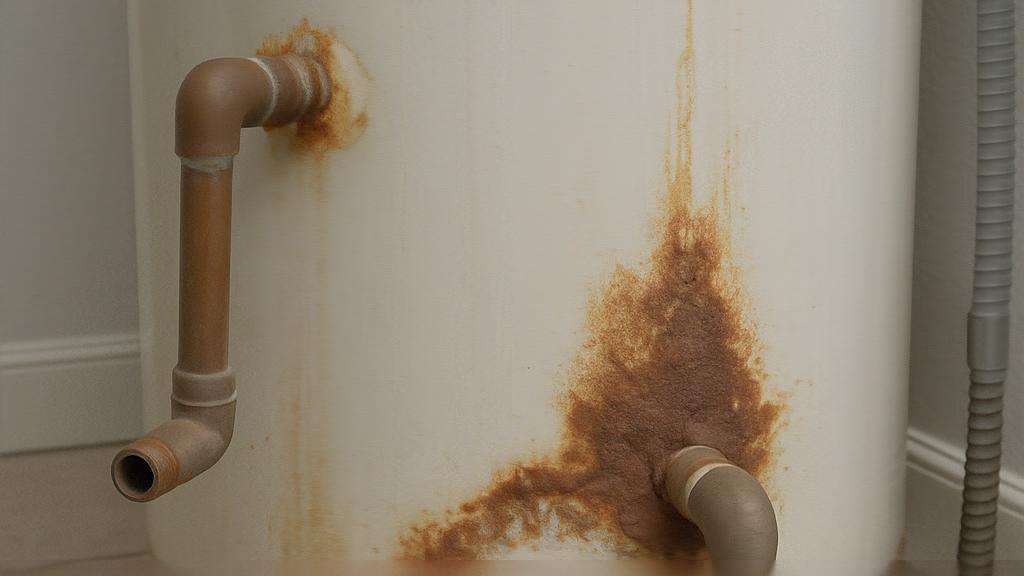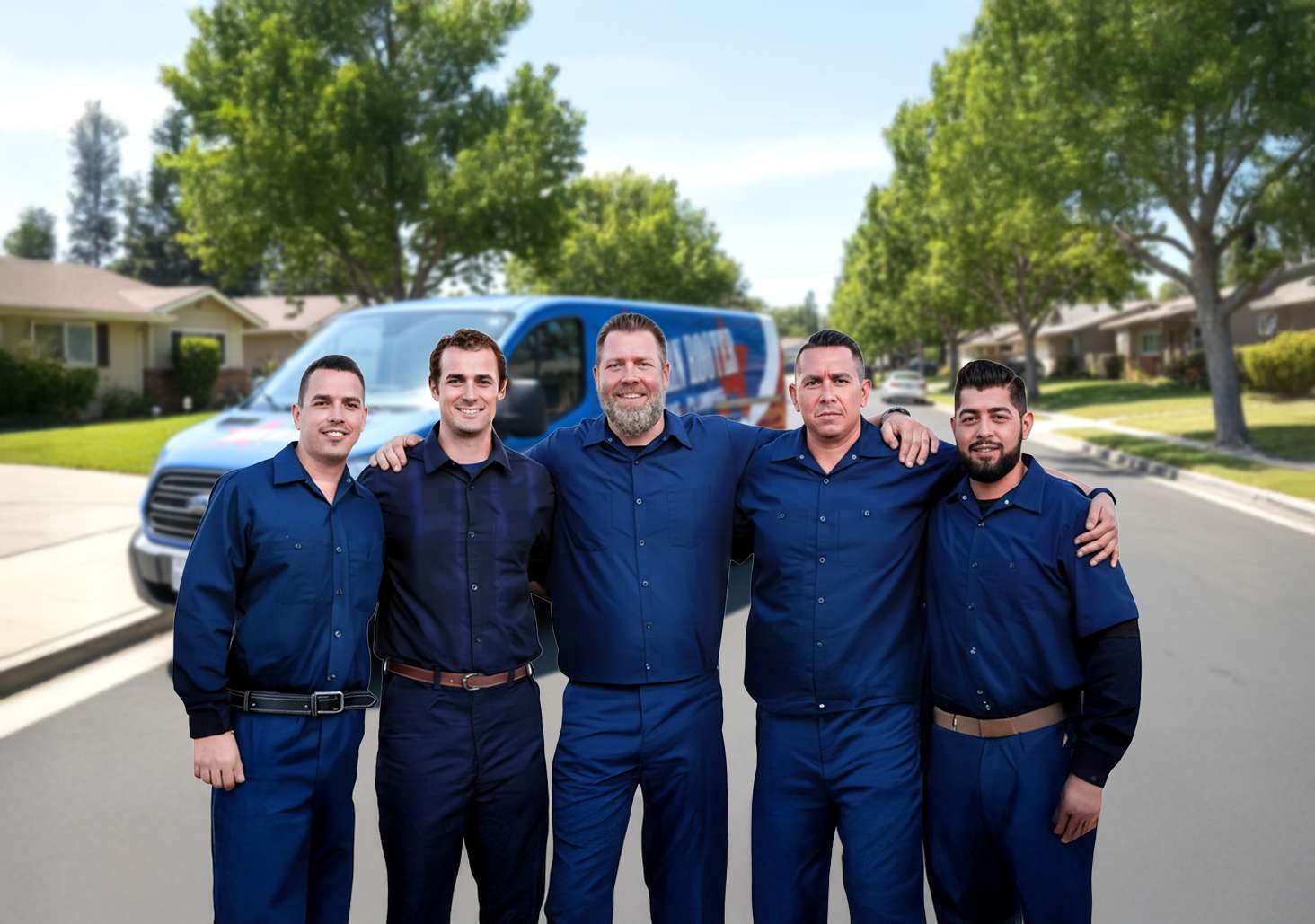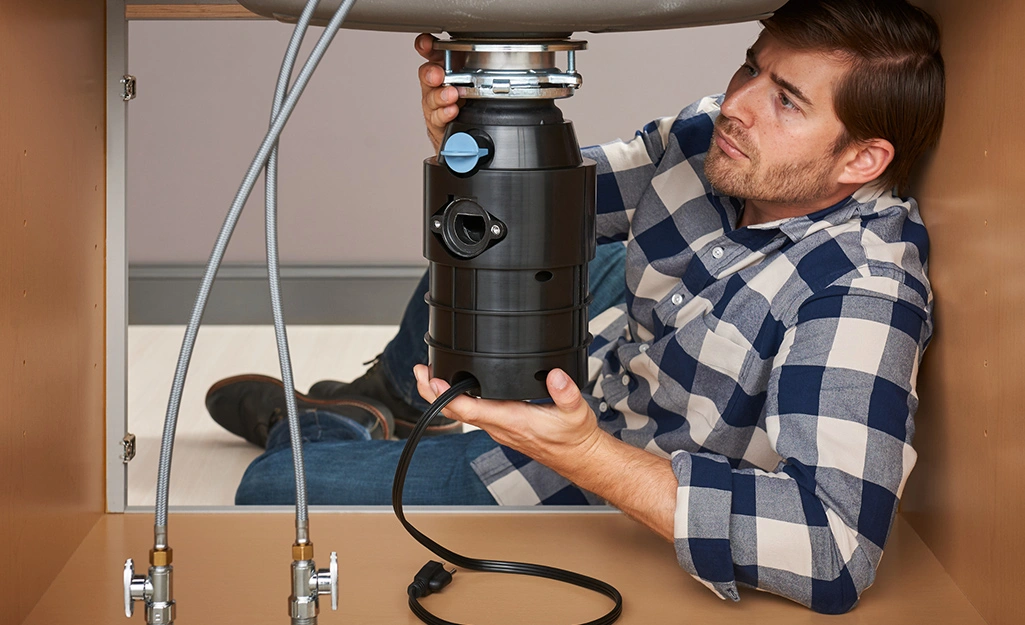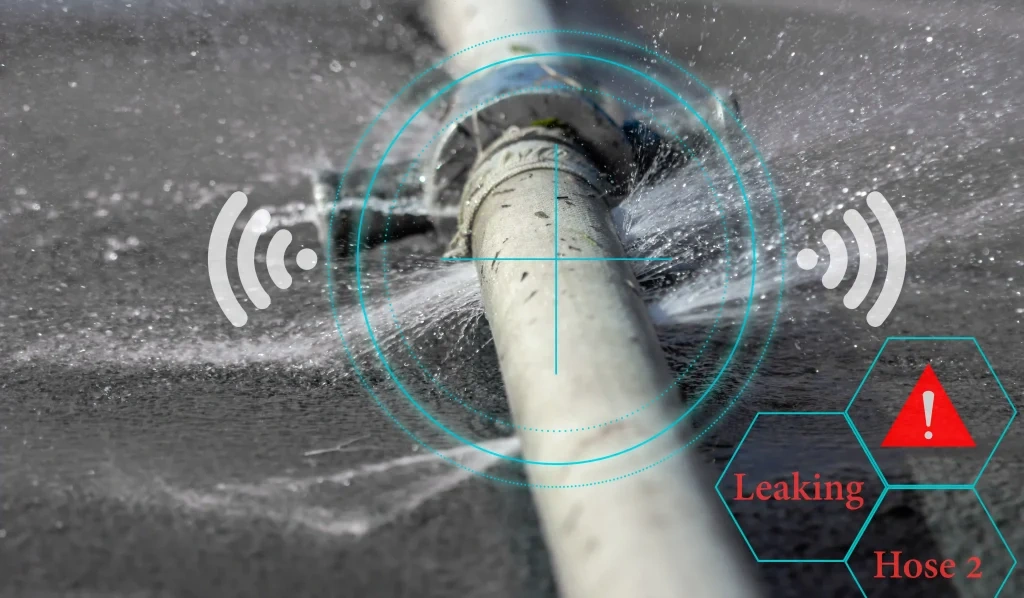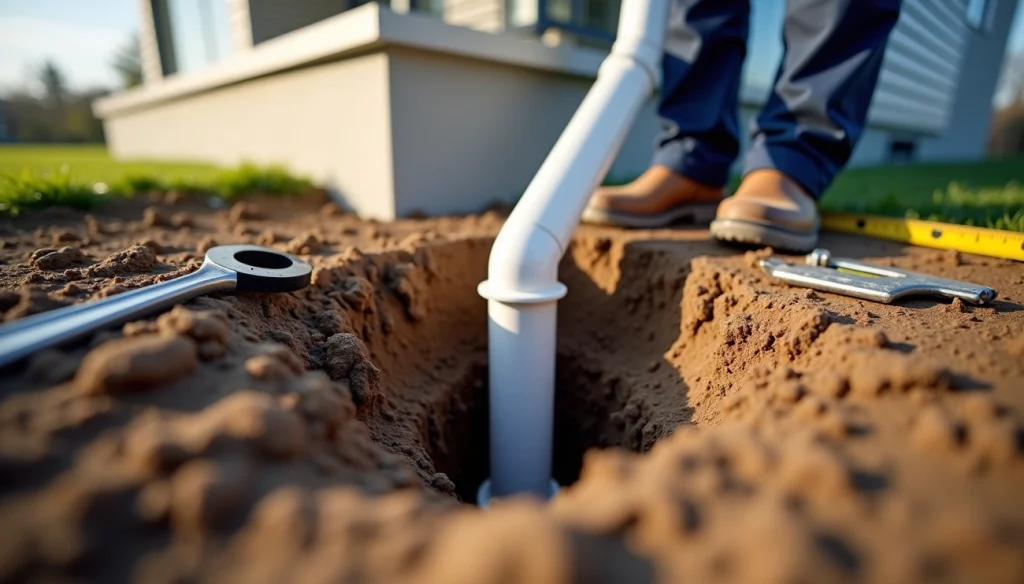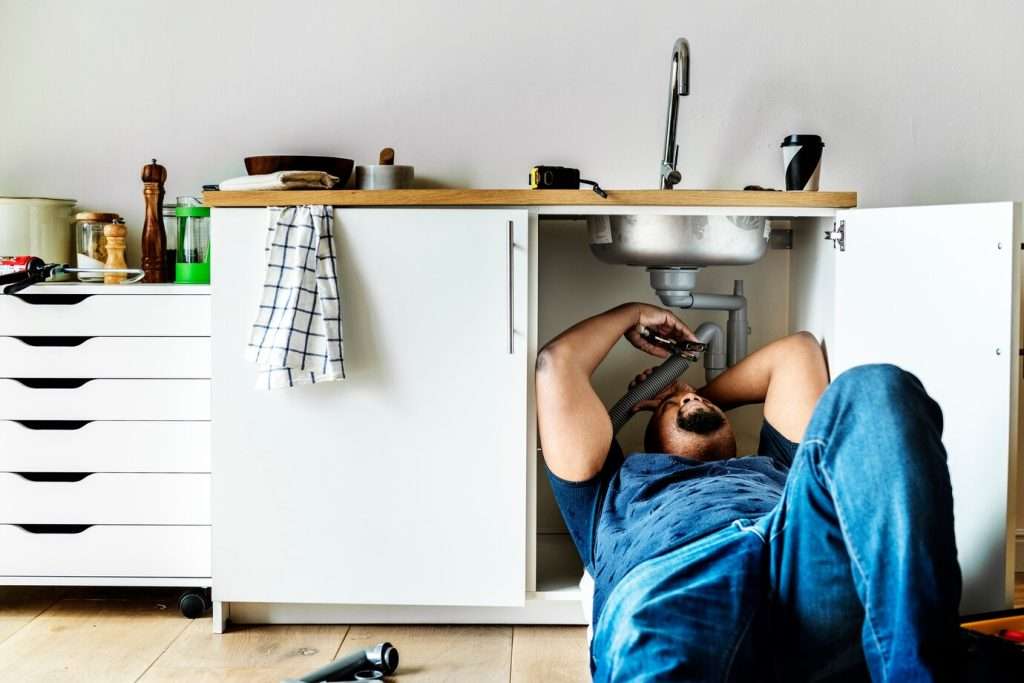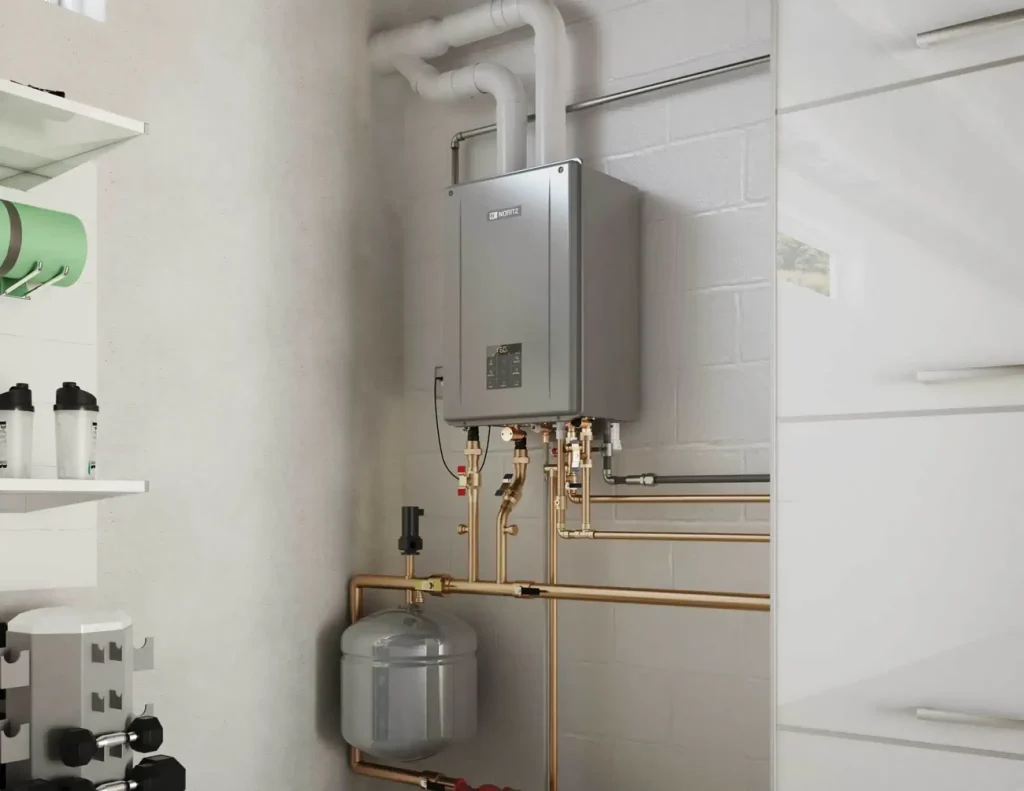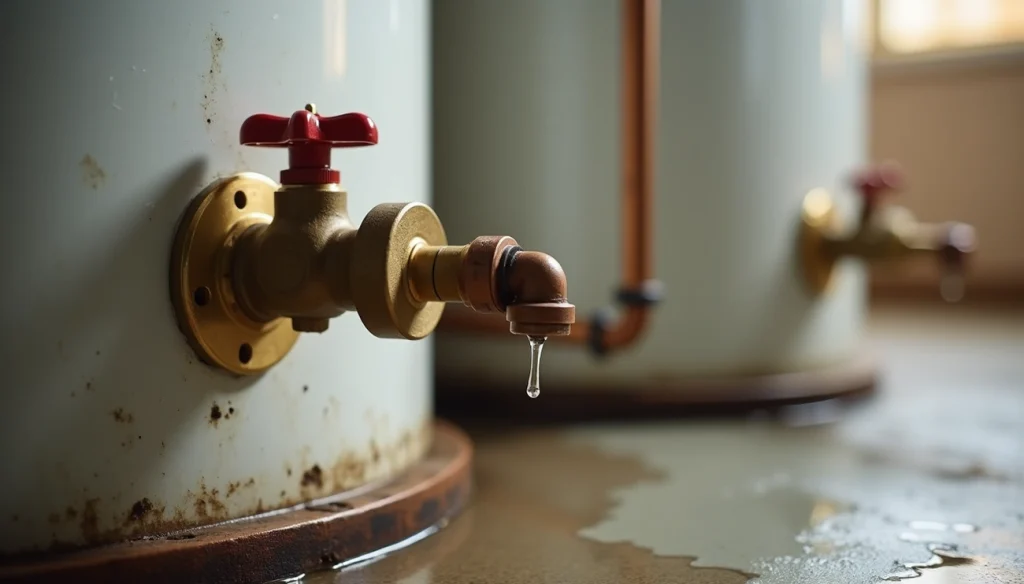Most water heaters last only 8-12 years before they show signs of failure. Many homeowners miss these critical warning signals until disaster strikes.
Your water heater’s decline reveals itself through several telltale indicators. The unit might produce strange noises like rumbling or popping. Rusty, discolored water could flow from your taps – a sign that shouldn’t be ignored. The unit might be struggling if you experience decreased water temperature, low pressure, or unexpected spikes in your energy bills. Understanding these bad water heater signs can protect you from cold showers and expensive water damage.
Tankless systems can last up to 20 years with proper maintenance, but they still need constant alertness. Traditional tank or tankless unit owners should understand their water heater’s problems and symptoms. This piece will help you identify trouble before you’re left in the cold.
How Long Should a Water Heater Last?
Your water heater’s expected lifespan can help you spot problems before it breaks down completely. The age of your unit will tell you a lot about those warning signs that your hot water heater might fail.
Typical lifespan of tank vs. tankless units
Tank-style water heaters don’t last as long as tankless models. Here’s what you can expect from conventional units:
- Gas tank water heaters: Last 8-12 years, though some fail after just 6 years
- Electric tank water heaters: Last about 10-15 years
Steel tanks in these units corrode over time until they weaken and start leaking.
Tankless water heaters last much longer:
- Most models work well for 15-20 years
- Quality units can run for 20-30 years with good maintenance
- Units with stainless steel heat exchangers last longer (25-30 years) than copper ones (12-20 years)
These units last longer because they don’t have storage tanks that rust and corrode. They also face less wear since they don’t need to reheat stored water throughout the day.
Tankless systems cost more upfront, but their longer life makes them worth it. The Department of Energy points out that tankless heaters outlast regular storage units and cost less to run, which makes up for their higher price.
Why age matters when spotting failure
The age of your water heater tells you the most about how long it will last. This knowledge helps you:
- Anticipate potential failures: Problems show up more often after 8-10 years in tank water heaters
- Recognize warning signs more accurately: Age puts other symptoms in perspective
- Make proactive replacement decisions: You can plan ahead and avoid emergencies
You can find your water heater’s age easily on the manufacturer’s label. Look for the serial number – manufacturers usually put the production date in the first two digits.
The warranty length tells you about your water heater’s quality and expected life. Better models come with longer warranties. Consumer Report’s analysis shows that 9-year and 12-year warranty models have bigger heating elements and thicker insulation.
The age of your water heater helps you decide between repairs and replacement. A tank-style unit over 10 years old or a tankless system near 20 years might need replacement even with minor issues.
Good maintenance will make any water heater last longer. Tank units need yearly flushing to remove sediment. Tankless systems need regular cleaning to keep working at their best throughout their longer life.
10 Warning Signs Your Water Heater Is Failing
Nobody wants cold showers or water damage. You can avoid these headaches by spotting early warning signs that your water heater needs attention or replacement.
1. Inconsistent or no hot water
Your water heater sends distress signals when your shower turns cold without warning or the water temperature keeps changing. Sediment buildup around the heating element, a broken thermostat, or a failing heating element usually causes this problem. Tankless units might show similar symptoms due to faulty pressure-balancing valves or pipes that are too small to handle your home’s needs.
2. Discolored or rusty water
Brown or rusty water coming from hot water taps points to internal corrosion. This happens when your tank starts breaking down or the anode rod fails. The anode rod’s job is to attract corrosive elements and protect your tank. Rusty water doesn’t just look bad – it can damage your appliances and leave stains on your fixtures.
3. Unusual noises from the tank
Your water heater shouldn’t make popping, rumbling, or banging sounds. These noises happen when sediment piles up at the tank’s bottom. Water has to push through this layer as it heats up, which creates those strange sounds. The heating element works harder than it should, and this can lead to overheating and early failure.
4. Water smells strange or metallic
Metallic-smelling hot water often means you’ve got too much sediment or corroding parts inside. A rotten egg smell suggests hydrogen sulfide buildup from bacteria changing sulfur in your tank. Regular flushing might fix this, but smells that won’t go away could mean serious internal damage.
5. Visible leaks or moisture around the unit
Water pooling near your heater’s base is a red flag that needs immediate attention. Leaks usually come from cracked tanks, loose connections, or a failing temperature and pressure relief valve. Once your tank starts leaking, you’ll probably have to replace it because internal corrosion has already damaged the unit.
6. Low water pressure from hot taps
Weak flow from just your hot water taps while cold water runs fine typically means sediment is blocking your hot water lines. Mineral deposits build up over time and restrict water flow. This doesn’t just make daily tasks harder – it’s a sign your unit is breaking down inside.
7. Higher energy bills without increased usage
Your water heater might be losing efficiency if you notice higher utility bills without using more water. Older units work harder to keep water hot, using more energy. Sediment can insulate the heating element, forcing it to run longer for the same results.
8. Frequent need for repairs
Multiple service calls are a clear sign your water heater is reaching its end. The two-thirds rule makes sense here – replacement becomes the smarter choice if repairs cost more than two-thirds of a new unit’s price.
9. Water heater is over 10 years old
Age reliably predicts when your unit might fail. Standard tank units usually last 8-12 years, while tankless models can run efficiently for 15-20 years. Minor issues deserve more attention once your unit reaches these ages.
10. Pilot light keeps going out (for gas units)
A pilot light that won’t stay lit points to possible thermocouple failure, gas supply problems, or poor ventilation. This safety feature stops gas flow when there’s no flame. Dirty parts, wrong gas pressure, or draft issues can cause this problem, affecting both heating efficiency and safety.
What Causes These Hot Water Heater Problems?
Your water heater fails because of physical and chemical processes that damage it over time. These mechanisms can help you spot problems early and make your unit last longer.
Sediment buildup and corrosion
Sediment accumulation and corrosion cause most water heater failures. Minerals like limestone and iron separate when water heats up and collect at the tank’s bottom. This layer of sediment insulates the tank and makes heating elements work harder. The extra strain guides your system toward:
- Higher energy bills and reduced efficiency
- Tank walls weakening from overheating
- Strange noises when water pushes through sediment
- Tank rupture in worst cases
Metal parts start to corrode when they meet oxygen in water through an electrochemical reaction. This process eats away at your tank’s interior, connections, and metal parts. The damage starts at the smallest weak point.
Worn-out anode rod
The anode rod in your water heater serves as a sacrificial part that corrodes first to protect the tank. This rod attracts corrosive elements away from tank walls and comes made from magnesium, aluminum, or zinc.
The protective rod wears away completely in 3-5 years based on your water quality and usage. Your tank and components start corroding once it’s gone. Yes, it is common to see rusty water and metallic smells that ended up causing tank leaks when the anode rod depletes.
You can extend your water heater’s life by checking and replacing this budget-friendly part regularly.
Faulty thermostat or heating element
Electric parts in your water heater face unique challenges. Thermostats control water temperature but often break down from age, sediment buildup, or electrical problems. Watch for signs like uneven temperatures, too-hot water, or no heat at all.
Sediment coating can make heating elements fail. These elements can’t transfer heat well when covered in minerals, which makes them overheat and crack. On top of that, electric units’ heating elements might develop shorts or breaks that stop them from working.
Poor maintenance over time
Skipping maintenance speeds up all these problems. Your water heater breaks down much faster without regular care. Expert recommendations include:
- Tank flushing every 6-12 months to clear sediment
- New anode rod every 3-5 years
- Annual pressure relief valve checks
- Regular inspection of connections and parts for damage signs
Regular maintenance matters more especially when you have hard water. High mineral content makes parts wear out faster and sediment build up quicker. Skipping maintenance can cut your heater’s life in half and cost you more to run it.
When to Repair vs. Replace Your Water Heater
Your water heater problems leave you with a tough choice: fix what you have or buy a new one. Several factors will shape this decision and affect both your immediate costs and long-term value.
How to tell if hot water heater is bad but fixable
Not every water heater problem means you need a new unit. Simple fixes work well for issues with pressure relief valves, thermostats, or broken heating elements. But some warning signs point to replacement as your best option:
- Fixable issues: Inconsistent temperatures, pilot light problems, or minor noises
- Replacement needed: Rust, fractures, significant leaks, or tank corrosion
Draining the tank might add years to your unit’s life if it overheats or shows signs of sediment buildup. All the same, multiple repairs in a short time suggest your water heater won’t last much longer.
Cost comparison: repair vs. replacement
Money plays a big part in your choice. The 50% rule helps here: replacement makes more sense if repairs cost more than half the price of a new water heater. Basic repairs run $150-$300, while bigger problems like tank leaks or heat exchanger issues can hit $500-$1,500.
Old units become less efficient over time. They work harder and drive up your utility bills. A new energy-efficient model costs more upfront but could save you money over time.
Warranty and age considerations
Look at your warranty before you decide on repairs. Water heater warranties usually last 6-12 years, and many home warranty plans cover major appliance repairs, including water heaters. Repairs might cost less if your unit is under five years old and still under warranty.
The age of your unit matters most. Tank water heaters last 8-12 years on average. Spending money on an old unit wastes your cash. Units over 10 years old should probably be replaced, even for small problems.
A quick repair might work if you plan to move soon. Your final choice should weigh repair costs against how much life your current unit has left.
Choosing a New Water Heater: What to Know
Shopping for a new water heater requires careful thought about what your household really needs and what fits your budget. A smart choice now will help you avoid hot water heater issues down the road.
Tank vs. tankless options
Your main decision boils down to choosing between conventional storage tanks and on-demand tankless systems:
Storage tank water heaters:
- Lower original purchase cost ($300-$2,000)
- Installation typically costs $500-$1,000
- Average lifespan of 10-15 years
- Need dedicated space for the tank
- Heat stored water continuously, which leads to standby heat loss
Tankless water heaters:
- Higher upfront cost ($1,000-$3,000)
- Installation costs ranging from $800-$1,500
- Extended lifespan of 20+ years
- Space-saving wall-mounted designs
- Heat water only as needed, which eliminates standby heat loss
Energy efficiency and long-term savings
Your long-term operating costs depend heavily on efficiency. Heat pump water heaters lead the pack with Uniform Energy Factor (UEF) ratings of 3.3-4.1 (330-410% efficiency). These units are nowhere near conventional models that reach approximately 0.95 (95% efficiency).
Operating expenses vary:
- Electric tank models cost approximately $580 annually
- Gas tank models average $245 annually
- Electric tankless units cost $535 annually
- Gas tankless models average $195 annually
Tankless water heaters can save 8-34% energy compared to conventional units. The payback period ranges from 12-27 years depending on fuel type. Your predicted length of home ownership should guide this investment decision.
Sizing your unit for your household
The right size water heater will give a steady supply of hot water without wasting capacity.
For tank water heaters, the first-hour rating (FHR) matters most – it shows how many gallons a water heater delivers in an hour starting with a full tank. Here’s a quick guide for tank capacity:
- 1-2 people: 30-40 gallons
- 3-4 people: 40-50 gallons
- 5+ people: 50-80+ gallons
For tankless water heaters, GPM (gallons-per-minute) ratings are key:
- Electric models: 2.5-7 GPM
- Gas models: up to 11 GPM
Tankless units might struggle if multiple hot water sources run at once. Your household’s peak usage patterns should guide your final choice.
Conclusion
Taking Action Before Your Water Heater Fails
Cold showers and expensive water damage can be avoided by spotting the warning signs of a failing water heater. This piece covers all the key indicators that spell trouble – strange noises, rusty water, temperature swings, and climbing energy bills.
Your water heater’s age gives the best clue about potential failure. Tank water heaters typically last 8-12 years. Tankless units will give you 15-20 years of reliable service. This is a big deal as it means that when your unit hits these milestones, you should think about replacement instead of repairs, even for small issues.
Regular maintenance will extend your water heater’s life substantially. The quickest way to prevent common problems is to flush the tank yearly and swap out the anode rod every 3-5 years. These steps become crucial in areas with hard water where minerals speed up part wear and tear.
The 50% rule helps you decide between fixing or replacing your unit. Replacement makes more sense when repair costs hit half the price of a new heater. New models are more energy-efficient too, which means lower utility bills and better performance.
Most people don’t notice their water heater until something breaks. Watching for these warning signs lets you fix problems before total failure happens. Whether you fix your current unit or buy a new one, knowing these signs will give you the ability to make smart choices about this vital home appliance. A well-maintained water heater provides reliable hot water without surprise breakdowns.


